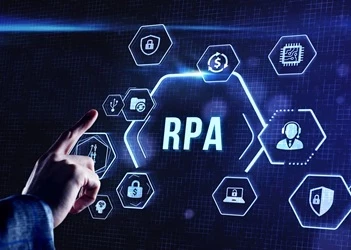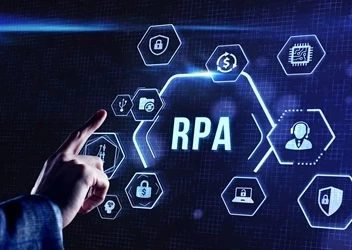How to successfully automate at scale with IA
Why understanding the organization, internal processes and data assets, and having a clear strategy are critical for successful intelligent automation applications in transformation initiatives
Add bookmark
PEX Network caught up with Erhan Ok, head of intelligent automation and integration at PepsiCo, ahead of his participation on a panel alongside experts from Nokia and Siemens Gamesa at PEX Live: IA and RPA 2021 taking place online on 22-24 June 2021. In this interview, Ok shares insight on how organizations can best leverage intelligent automation (IA) to automate at scale and offers his recommendations for integrating these technologies with legacy systems. 
Ok, who has worked at multiple startups, HSBC, 3M and ABB, has vast experience in RPA, AI, IA and digital strategy and transformation. At 3M, he created the RPA + Cognitive proof-of-concept to help chatbots to handle requests from internal customers. At ABB, he developed and deployed intelligent document processing product to digitize scanned documents by integrating the existing RPA platform with artificial intelligence (AI) technologies to process the image, extract the data, and structure and correlate it to provide digitized data that could be processed in its system. In Ok’s current role at PepsiCo, he provides expertise to reach the organizational digital mastery.
PEX Network: How can organizations best leverage IA to automate at scale?
Erhan Ok: When RPA began, the focus was on how much money organizations invested and how much dollars savings they would get from it. They could not justify the investment of RPA after a while because it was the arms of the digital workers that only carried out routine tasks. The routine tasks weren’t the major part of overall processes. For this reason, businesses were discovering AI offerings to boost its value.
This is where IA came into play, because when organizations focus on bigger scale initiatives, it becomes a must and cannot be avoided. The key is to find the right approach to implement IA as you cannot jump straight into technologies such as machine learning and natural language processing. You have to first understand your organization, processes and data before taking steps to implement RPA, process mining and IA technologies. Scaling must be achieved, but ways to scale must be carried out gradually so they can adapt as an organization grows.
Some companies fail at digitization at scale and the reason for this is that the approach toward this cannot be a “copy and paste” initiative. It has to be personalized and tailor-made for a specific organization by considering its processes, organization type and setup, internal data and leadership.
PEX Network: What is your advice for organizations wanting to integrate IA technologies into their legacy systems?
EO: I would advise to first think about the roadmap for these systems. If you are going to use them for the next 15 to 20 years, then go ahead and implement IA right away.
If there are some plans to upgrade your legacy systems into more modern technology, I would recommend not to rush. The reason for this is that building an artificial intelligence (AI) capability and solution is time-consuming. Once you have built it and brought it to a certain maturity of capability (in terms of accuracy and data fed for example) when you change its core you will lose all the information you have put in there in the first place. Also, today’s possibilities of IA on legacy systems may not be the same as with the modern systems hence a lot of waste in effort that you will put for building IA solutions.
You need to have a clear strategy around the application landscape in the future, accurate prediction on future of processes and data, and know how IA can be integrated hands in hands with the new application ecosystem – in case of migration from legacy to modern systems.
PEX Network: What developments do you see happen in the IA space over the next few years?
EO: My prediction is that the market will consolidate. A few years ago there were only a few big players but now there are a lot of different vendors providing the similar kinds of solutions, of whom some will disappear.
I expect IA technologies to end up automating about 100 per cent of a process as they all automate different kind of abilities: RPA automates routine steps; AI processes images and other non-digital assets; and chatbots provide customer-focused solutions. Perhaps in the future there will be a way for customers to have a personalized digital assistant that will handle any of their requests autonomously and deliver in real-time, which will remove the need to deal with different departments and multiple people, and most importantly avoid delays on operating.
Another prediction I have is around the integration of IA with Internet of Things (IoT) devices. In todays’ world, we have great data provided by the IoT devices which could be easily converted into actionable and autonomous activities. Imagine one day, store owners will stop worrying about tracking their products inventory and submit a sales order.
PEX Network: What can attendees expect from your contribution to the panel at PEX Live: IA and RPA 2021?
EO: The way you approach this topic is important and really matters. A lot of companies treat this as a single project that only ends up implementing a couple of robots before being signed off.
To achieve digital mastery and become an AI-enabled digitized company, organizations need to think of two things. Firstly, the capability they will be building for their own business, what they prioritize in the nearest future and in the long term. That comes with embracing digital technologies and innovation.
Secondly – and most importantly – leadership, which gets missed a lot. Today, in order to manage human workers, we have people leaders. Tomorrow, we will have digital workers and who will manage them? People leaders? Not necessarily, as robots don’t have human issues such as emotion and diseases, and they will be constantly working. They might, however, bring more problems in the overall operations landscape.
Digital leadership will be key to define the future of success in the IA journey. It cannot be achieved through IT or the business side only, it should be done throughout the organization, with leaders embracing and managing the outcomes of the overall digital transformation efforts.
Join Ok and experts from Nokia and Siemens Gamesa at PEX Live: IA and RPA 2021 by registering to the event where attendees will have the opportunity ask questions to our panel in real time.




























